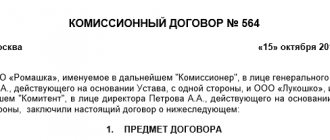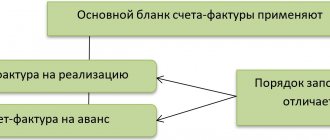A distinctive feature of such agreements is that such transactions do not entail obligations of a material nature (transfer of property, etc.).
What are the characteristics of a service agreement?
Since the services provided here cannot be expressed in certain units (measured in meters, kilograms, etc.), and accounting is taken only based on the area of activity, the list of services provided is quite voluminous.
This list may include consulting services, recruitment of personnel for vacant positions in the organization, accounting, cleaning of premises, etc.
Also, a number of organizations, taking into account the crisis situation in the state, in order to save on specialists, hire them for a certain period to perform a given amount of work.
What rules are followed when drawing up service agreements?
Such an agreement, however, like any other in which legal entities are parties, must:
- be made exclusively in writing;
- include a sufficient amount of information to coordinate the actions of the participants within the framework of the agreement;
- fully comply with the legislative norms in force in the state.
Features of the executed agreement:
- it should indicate what type of services will be provided, for what period, and the method chosen for this. For example, staff training may require specialists to travel to the location of the customer’s office. If there is a need to describe in more detail the actions assigned to the performer, an additional, clarifying annex may be drawn up to the agreement;
- The specific method used to ensure proper provision of services is indicated:
- The Contractor carries out independent actions to provide services. Mainly, this happens if the contractor is a specialized organization. This could be a company responsible for conducting an audit, a sports complex, etc.;
- To perform individual actions, a co-executor is involved. This option is used if the organization (the main contractor) cannot carry out the entire list of work independently and needs to attract outside specialists;
- The customer can participate in the selection of a co-executor. This clause can be included in the contract at the request of the customer, who insists on his participation in the selection of co-executors in order to ensure the latter’s qualifications;
- The work is carried out without approval. In this case, the contractor is given the opportunity, at his own discretion, to select assistants for the proper execution of the order.
The next stage involves determining the procedure for reimbursement of expenses incurred during the execution of work.
Which party initially bears the costs, how can they be reimbursed, and how are they negotiated?
All specified requirements must be taken into account in advance, at the stage of agreeing on the terms of the agreement between the parties.
It is also necessary to pay special attention to the issue of agreeing on payment terms for services performed. Payment can be made in advance (in part or in full), divided into periods, in stages (as services are provided), or upon completion of the work.
Any payments between legal entities must be made non-cash.
Dear readers! Our articles talk about typical ways to resolve legal issues, but each case is unique. If you want to find out how to solve your specific problem, please contact the online consultant form on the right. It's fast and free! Or call us at :
+7 Moscow, Moscow region
+7 St. Petersburg, Leningrad region
8 Federal number (free call for all regions of Russia)!
Service agreement between legal entities: sample
A sample agreement is here.
Service agreement
St. Petersburg February 14, 2020
LLC "TelecomRu", hereinafter referred to as the "Contractor", represented by General Director Vladimir Konstantinovich Yustinov, acting on the basis of the charter of the LLC dated March 25, 2005, on the one hand, and LLC "YurConsult", hereinafter referred to as the "Customer", represented by General Director Virchishin David Lvovich, acting on the basis of the LLC charter dated July 12, 2004, on the other hand, collectively referred to as the “Parties” or “Party”, have entered into this Agreement as follows:
1.TERMS
1.1. “Billing period” is the calendar month beginning immediately after the month in which communication services were provided to the Customer.
1.2. “Tariff” - the price at which payment is made for the provided communication services between the Parties.
1.3. “Communication service” - communication services that are provided by the Contractor to the Customer under this Agreement using the Contractor’s equipment.
2. SUBJECT OF THE AGREEMENT
2.1. The Contractor under this Agreement undertakes to provide the Customer with Communication Services, and the Customer undertakes to pay for Communication Services on the terms and in the manner set out in this Agreement.
3. TERMS OF PROVISION OF COMMUNICATION SERVICES
3.1. After concluding this Agreement, the Customer has the right to receive Communication Services, and the Contractor, if technically possible and if the Customer has access to telematic communication services, is obliged to provide Communication Services to the Customer.
3.2. Communication services are provided with the preliminary selection of the Contractor as a telematics operator.
3.3. To receive Communication Services, the Customer must complete the following actual sequential actions:
- make an advance payment in the amount and according to the calculations specified in Appendix No. 3 to this Agreement;
- upon the Contractor's request, provide access to the Customer's premises and final equipment.
3.4. The communication service is considered provided from the moment the Customer connects to the network, after the Customer performs the actions specified in clause 3.3. actual agreement.
Agreement for the provision of services by an individual to a legal entity.
Read here how to draw up an agreement for the provision of legal services.[/anchor]
How to draw up an agreement for the provision of services between legal entities, read the link:
4. RIGHTS AND OBLIGATIONS OF THE PARTIES
4.1. The Contractor undertakes:
4.1.1. Provide Communication Services in accordance with the legislation of the Russian Federation, national standards, technical norms and rules, in compliance with labor protection rules and instructions approved by the Contractor, as well as this Agreement.
4.1.2. Eliminate within 2 (two) days any malfunctions that arose due to the Contractor’s fault and impede the use of the Communication Services.
4.1.3. Notify the Customer about changes in the terms of service, payment methods for communication services, Tariffs at least 5 (five) days before the date of introduction of such changes by sending a written message.
4.1.4. Create a Certificate of Services Rendered in the Billing Period in 2 copies and send it to the Customer within 3 (three) days.
4.1.5. Fulfill other obligations provided for by the current legislation of the Russian Federation and this Agreement.
4.2. The performer has the right:
4.2.1. Change unilaterally the Tariffs, terms and conditions of payment in accordance with clause 4.1.3. actual agreement.
4.2.2. Temporarily suspend the provision of access to the Customer's Communication Services in the cases provided for in clause 6.2. actual agreement.
4.3. The customer undertakes:
4.3.1. Make payment for the communication services provided to him within the terms and conditions provided for in this Agreement.
4.3.2. Sign the Certificate of Services Rendered within the Billing Period within 5 (five) days. In case of disagreement with the contents of the Certificate, send within the same period a written reasoned refusal to sign the Certificate of Services Rendered. In case of failure to send the Certificate of Services Rendered or refusal to sign it, the Communication Services for the corresponding Billing Period will be recognized as properly provided.
4.3.3. Fulfill other obligations provided for by the current legislation of the Russian Federation and this Agreement.
4.4. The customer has the right:
4.4.1. Make claims on the received invoice in the manner provided for in Section 7 of this Agreement.
4.4.2. Refuse to pay for communication services provided to the Customer without his consent. Communication services are considered provided to the Customer with his consent if the actions specified in clause 3.3 have been performed. actual agreement.
5. COST OF COMMUNICATION SERVICES AND PAYMENT PROCEDURE
5.1. Tariffs for Communication Services are established by the Parties by signing the Additional Agreement to this Agreement and may be changed subject to the Contractor's compliance with the provisions of clause 4.1.3. actual agreement.
5.2. The charging unit is 120 Mbit/sec. The tariff unit can be changed by the Contractor at any time unilaterally.
5.3. Payment for services is made by the Customer on the basis of an invoice issued by the Contractor within 5 (five) days from the date of its receipt by the Customer. If required by law, the Contractor also issues an invoice to the Customer.
5.4. The Customer pays for the Communication Services provided to him under this Agreement exclusively using the bank details specified in the invoice for payment for Communication Services, or in cash at the Contractor's payment points.
5.5. An invoice for payment for Communication Services provided in the month preceding the Billing Period is issued to the Customer before the 28th day of the Billing Period indicating the total amount of payment, as well as indicating each type of Services, their volume and cost. The basis for issuing an invoice to the Customer is the data obtained using the equipment used to record the volume of communication services provided.
5.6. At the end of the calendar year or as necessary, the Parties draw up and sign in 2 copies a Statement of Reconciliation of Settlements, which indicates the periods, volumes and cost of the provided Communication Services.
6. LIABILITY OF THE PARTIES AND FORCE MAJEURE CIRCUMSTANCES
6.1. For failure to fulfill or improper fulfillment of their obligations under this Agreement, the Parties are liable in accordance with the current legislation of the Russian Federation.
6.2. In the event of a delay in payment or other violation by the Customer of the requirements established by the Federal Law “On Communications” or this Agreement, the Contractor has the right to suspend the provision of access to Communication Services for a period until the Customer fully repays the debt or, accordingly, eliminates other violations committed by the Customer. The resumption of access to the Communication Services is carried out by the Contractor within 2 (two) business days from the date the Customer fulfills the violated obligations in a proper manner.
6.3. For each day of delay in payment for services rendered, the Contractor has the right to collect from the Customer a penalty in the amount of 5% of the cost of the Communication Services provided in the month preceding the Billing Period for each day of delay, but not more than the amount payable. The Customer is obliged to pay the penalty to the Contractor within 4 (four) days from the date of presentation of the demand for payment.
6.4. The parties are released from liability for non-fulfillment or improper fulfillment of their obligations under this Agreement if they prove that proper fulfillment was impossible due to force majeure, that is, extraordinary, unforeseen and unpreventable circumstances under the given conditions. At the same time, the presence of force majeure extends the period for the Parties to fulfill their obligations under the Agreement in proportion to the duration of its validity. If force majeure lasts more than six months, the Parties are obliged, at the proposal of one of the Parties, to agree on further terms of action and/or the possibility of terminating this Agreement.
7. DISPUTE RESOLUTION
7.1. In case of non-fulfillment or improper fulfillment of obligations arising from this Agreement, the Customer, before going to court, presents a claim to the Contractor in accordance with Art. 55-56 of the Federal Law of July 7, 2003 N 126-FZ “On Communications”.
7.2. If the claim is rejected in whole or in part or if a response is not received within the time period established for its consideration, the Customer has the right to file a claim with the Arbitration Court of St. Petersburg and the Leningrad Region.
8. TERM AND CONDITIONS FOR CHANGE AND TERMINATION OF THE AGREEMENT
8.1. This Agreement is valid from the moment it is signed by the Parties and is concluded for a period of 2 (two) years from the date of its commencement.
The Agreement is automatically extended for the next year, unless otherwise stated by either Party 2 (two) months before its expiration.
8.2. This Agreement may be terminated early in cases and in the manner provided for by the current legislation of the Russian Federation.
8.3. In the event of termination of this Agreement, the Parties must make mutual settlements for all obligations.
8.4. All changes and additions to this Agreement are made in writing and signed by authorized representatives of the Parties in two copies.
9. OTHER CONDITIONS
9.1. This Agreement is drawn up and signed in two copies having equal legal force, one copy for each Party.
10. ADDRESSES, DETAILS AND SIGNATURES OF THE PARTIES
Customer:
- Legal address: 832903, St. Petersburg, st. Postal, 194/2;
- Postal address: 832903, St. Petersburg, st. Postal, 194/2;
- Phone fax;
- INN/KPP: 8388239739/323748345;
- Current account: 83882378300383495493;
- Bank: PJSC "MetaBank";
- Correspondent account: 38823838293040583459;
- BIC:
Head of the organization
_______________/IN. K. Yustinov
M.P.
Executor:
- Legal address: 832903, St. Petersburg, st. Mikhailovskaya, 173/3;
- Postal address: 832903, St. Petersburg, st. Mikhailovskaya, 173/3;
- Phone fax;
- INN/KPP: 8382378937/388238345;
- Current account: 37238789372938459234;
- Bank: PJSC "FBBank";
- Correspondent account: 48388378383928349344;
- BIC: 388238893;
Head of the organization
______________/D. L. Virchyshyn
M.P.
Why do you need a work contract?
Before drawing up the DDA, you need to figure out whether it is needed?
The DDA is a document on the basis of which the party acting as the Contractor undertakes to fulfill the task of the customer-employer. Based on the executed agreement, the customer assumes the obligation to pay for the work performed. Registration of the DDA is regulated by the legislative norms outlined in Chapter. 37 Civil Code of the Russian Federation. The conditions of each DDA are individual, since each specific option contains factors that influence the list of works and their payment.
The DDA must contain essential conditions, without which the agreement will not be given legal status.
A DDA can be issued between:
- Organizations.
- Individuals.
- Legal and individual.
For example, if it is necessary to repair a roof at an enterprise, you can enter into an agreement with an individual who is a specialist in this field.
Relations between the parties to the transaction are regulated by the Civil Code of the Russian Federation, which outlines 4 types of work:
- At the household level.
- Construction works.
- Carrying out design and survey work.
- Execution of work under government orders.
Depending on the type of work performed, the agreement specifies different essential conditions. For example, a construction contract is somewhat different from a household contract.
In what cases is it used
A work contract can be used when:
- In domestic contracting to perform household work at the request of the customer. This is a public agreement that is regulated by the Civil Code of the Russian Federation, as well as regulations and corresponding acts for the protection of consumer rights.
- When contracting for construction - for the construction of an object according to the instructions of the customer. At the same time, the customer provides the conditions for the work, accepts the object, and upon completion pays for the work.
- When performing design and survey work, for the development of technical documentation and for carrying out survey work on the instructions of the customer.
- When fulfilling government orders. Work on government orders is carried out on the basis of concluded state or municipal contracts.
How to correctly draw up a contract for the provision of services?
The attorney has a number of responsibilities specified in Art. 974 Civil Code of the Russian Federation. The main requirement is to comply with the terms of the agreement in full, including informing the principal about all stages of the transaction at the first request or within the time limits established in the contract. Unless otherwise provided, the attorney undertakes to personally provide services under the agreement.
Art. 975 of the Civil Code of the Russian Federation determined a number of obligations of the principal. He must draw up a power of attorney in the name of the attorney to perform services under the agency agreement. If the contract is paid, then the principal undertakes to pay the remuneration in a timely manner.
Termination of an agreement can occur in several cases, for example, cancellation of an order by the principal or refusal of the attorney to fulfill obligations. The death of the principal is also grounds for termination of the agreement and power of attorney.
The contract for the assignment of services can be downloaded on the ProstoDocs website. It will take no more than 15 minutes to draw up an agreement. The service is intuitive and understandable even to teenagers. The user answers questions prepared by practicing lawyers in the form on the left, and the information is distributed automatically throughout the document. Use the service right now!









